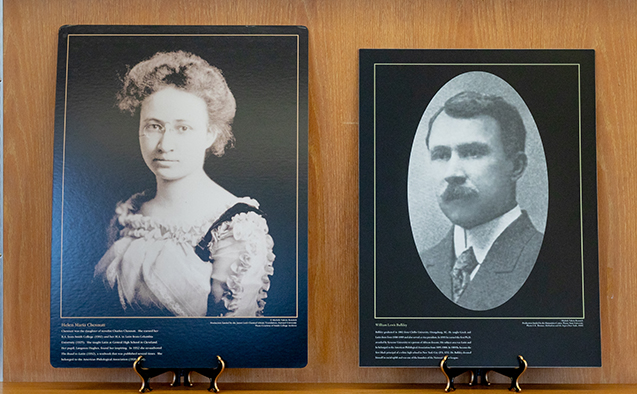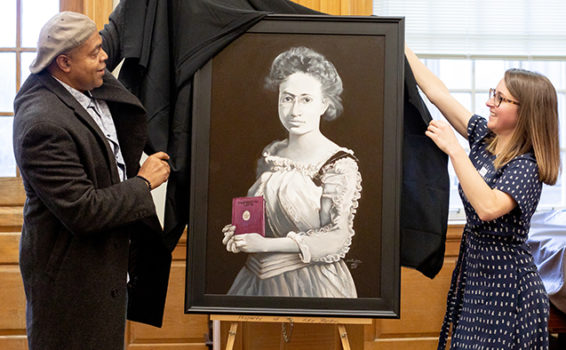'Classics Beyond Whiteness:' Relevant, inclusive

The course “Classics Beyond Whiteness” was originally limited to 15 students. Twenty-six registered. “I couldn’t turn students away,” said classics professor T.H.M. Gellar-Goad.
The fall class was one of several planned courses, events and programming focusing on “Classics Beyond Whiteness” – a multidisciplinary collaboration that examines a misleading and damaging tendency to focus on white scholars and perspectives in studies of the ancient Greek and Roman worlds, while excluding black voices. Gellar-Goad and classics postdoctoral fellow Caitlin Hines are co-organizers of the year-long series.
“We are forging new paths toward a more inclusive, constructive vision of the discipline,” Gellar-Goad said. “Wake Forest is ready for this, and our students want to be involved.”
Programming efforts have focused on three goals: Examining the role of classics in modern racial politics, encouraging more people of color to engage with the classics, and raising awareness of the role of race and ethnicity in the classical world.
Senior classical studies major Emelyn Hatch enrolled in “Classics Beyond Whiteness” and this semester she’s taking “Ancient Worlds, Modern Crises” with professor Hines. She said the classes have heightened her awareness of how historical and contemporary approaches to classical studies “can be and have been used to oppress and exclude, but also how they can work to enrich the discipline and reveal its relevance” in today’s world.
“The study of classical antiquity doesn't and can't exist in a vacuum, and the discipline must constantly work to be anti-racist, feminist and inclusive.” Senior classical studies major Emelyn Hatch
Lectures, workshops, film screenings, art projects, a reading group, and a museum exhibit are some of the approaches used to elevate and celebrate the contributions of black classicists. Gellar-Goad said the events offered in the fall drew some of the best crowds he has seen at department hosted events.
In spring 2019, Michele Valerie Ronnick, a professor in classical and modern languages, literatures and cultures at Wayne State University, spoke at Wake Forest. Ronnick’s research uncovers forgotten and erased figures from the history of classical studies. Her traveling photo installation “14 Black Classicists” is on exhibit in the Z. Smith Reynolds library.
Ronnick’s talk focused on nine black classicists from North Carolina. A portrait of Helen Maria Chestnutt by Winston-Salem artist Leo Rucker was unveiled at the opening of the exhibition and is a permanent part of the University’s art collections. Chestnutt, a teacher, author and classical scholar was born in Fayetteville, N.C. in 1880.

Artist Leo Rucker and Postdoctoral Fellow Caitlin Hines unveil Rucker’s portrait of Helen Maria Chestnutt.
In addition to the exhibition in library’s Ammons Room, highlights for the spring Classics Beyond Whiteness programming include a screening and panel discussion of Spike Lee’s film “Chi-Raq” – an adaptation of an ancient Greek comedy and a discussion of classics, inclusion and ways to correct historical inequities with Dani Bostick.
“Classics is where these conversations can and should happen. Our students are energized to be addressing old materials with new lenses,” Gellar-Goad said.
Classics Beyond Whiteness sponsors include the Wake Forest Classics Department, Wake Forest Provost’s Fund for a Vibrant Campus, Wake Forest Humanities Institute, the Society for Classical Studies’ Classics Everywhere Grant, Bridge Initiative Grant from the Classical Association of the Middle, West and South, the Wake Forest Slavery, Race, and Memory Project, and the Wake Forest Student Government.
Categories: Inclusive Excellence, Research & Discovery
Wake Forest News
336.758.5237
media@wfu.edu
Meet the News Team
Headlines
Wake Forest in the News
Wake Forest regularly appears in media outlets around the world.




